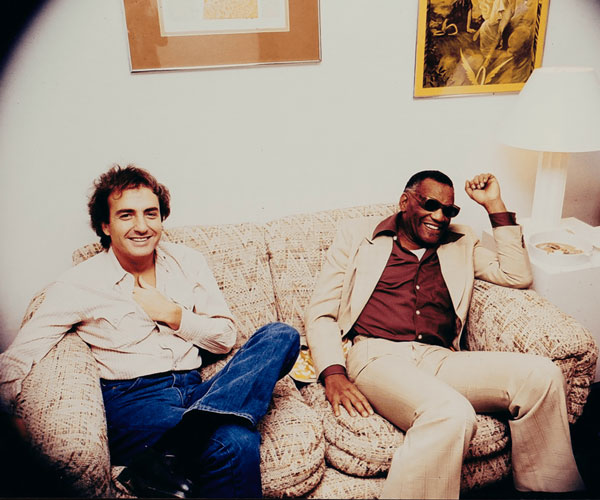"England's Newest Hit Makers connected with me in a big way," says Harris, president and CEO of the Rock and Roll Hall of Fame and Museum. "I had a cassette tape of it and drove from Philadelphia to San Francisco to see some friends, and that was the primary tape the entire drive."
The U.S. version of the Rolling Stones' 1964 debut album kicks off with "Not Fade Away" and winds through a collection of other American rock and blues covers: "Route 66," "Honest I Do," "I Just Want to Make Love to You," "I'm a King Bee."
"They took their name from a Muddy Waters song," Harris says. "All they wanted to do was play as well as Muddy Waters. And their first couple albums are almost all covers of Chuck Berry and Slim Harpo and these American blues guys."
On May 24, the Rock Hall will peel back the Stones mystique when it unveils the first-ever major exhibition dedicated to the band, Rolling Stones: 50 Years of Satisfaction. It will stretch back to the group's founding in England and follow its storied career, which spanned 24 studio albums in the United States and a total of eight different full-time band members.
The exhibit, presented on the Rock Hall's top two floors, will feature a host of band artifacts ranging from Stones co-founder Brian Jones' guitar to the jacket Keith Richards wore in photos included in the 1966 compilation album Big Hits (High Tide and Green Grass) to a 1970 letter from the band (messily signed by each member at the bottom) asking Santana for permission to use footage of the group in the film that became Gimme Shelter.
But it will also dissect the early creation and subsequent evolution of the Stones' bad boy persona. Initially used to cast them as a stark contrast to the other now-iconic act rising out of England at the time, the Stones' hedonism ultimately became their hallmark.
"By adopting that swagger, which they adopted early on, it was almost a marketing move to make them the bad boys of rock •n' roll — to be the anti-Beatles," Harris says. "Once they adopted that, it sort of became their identity. Then, they actually lived it."
Rock Icons: Look for these pieces on display as part of Rolling Stones: 50 Years of Satisfaction.
Keith Richards leather jacket (1965)
Letter to Santana (1970)
Mick Jagger stage outfit (1981)



